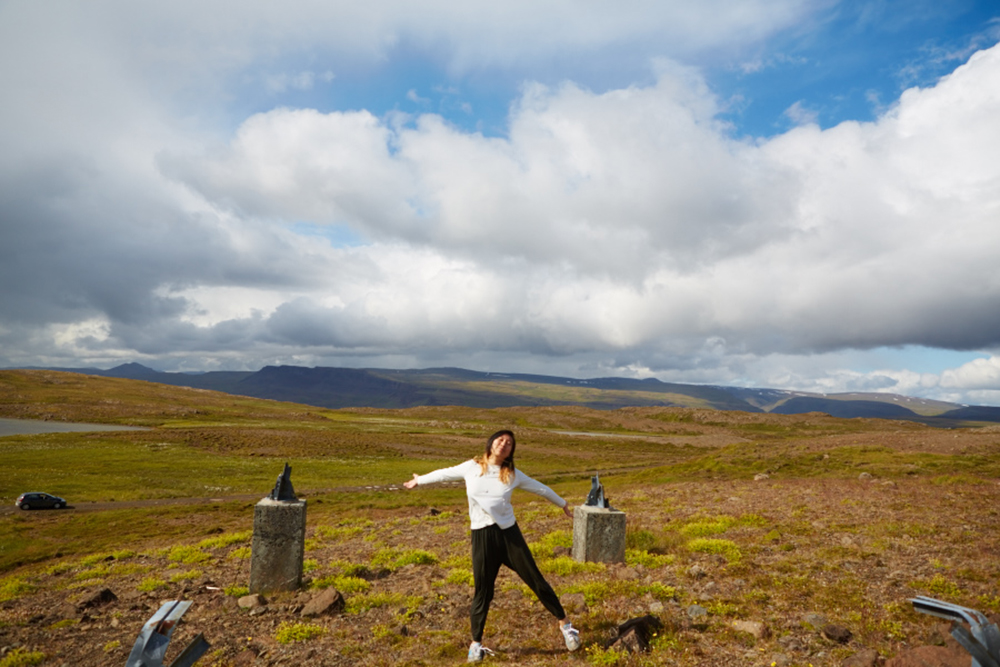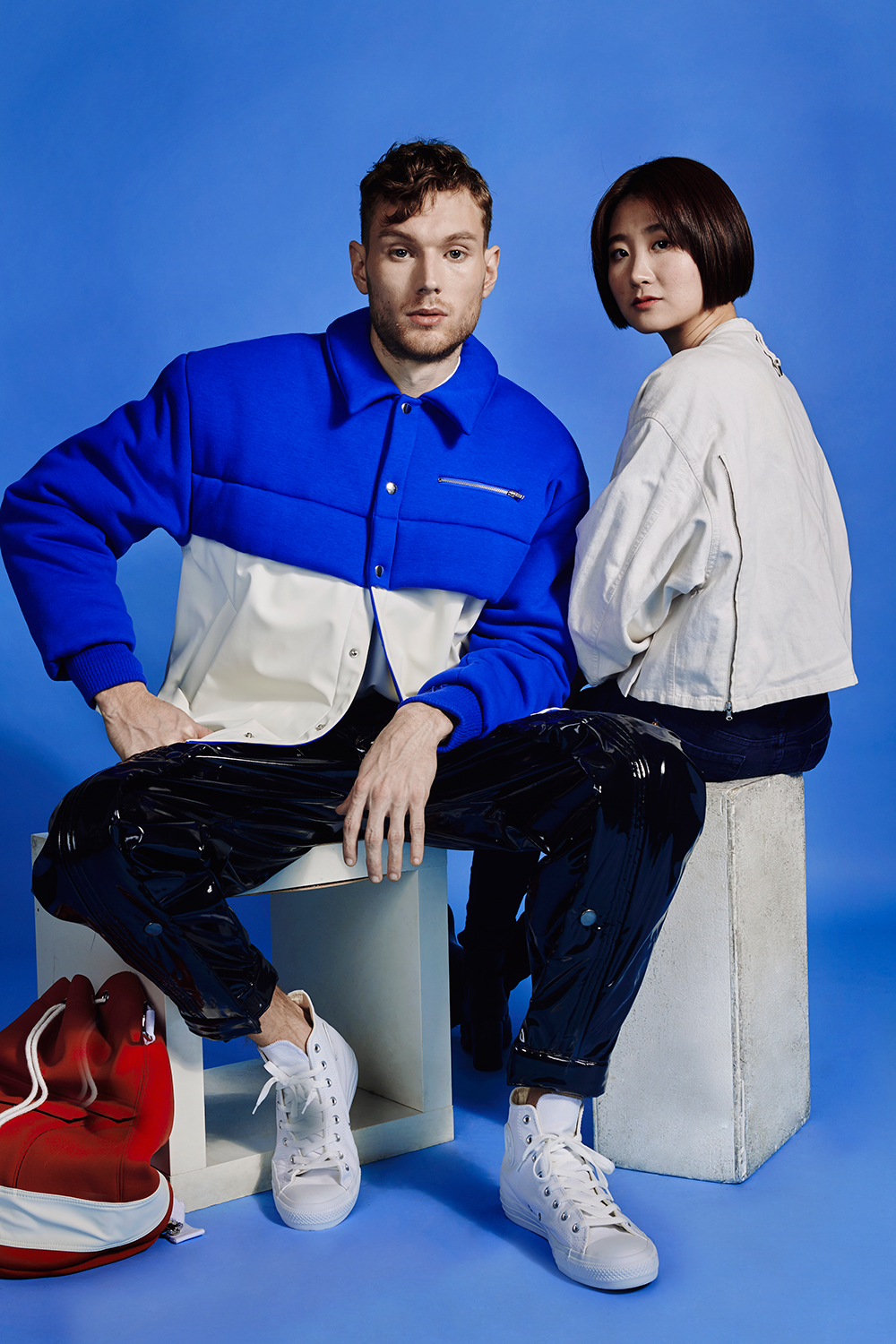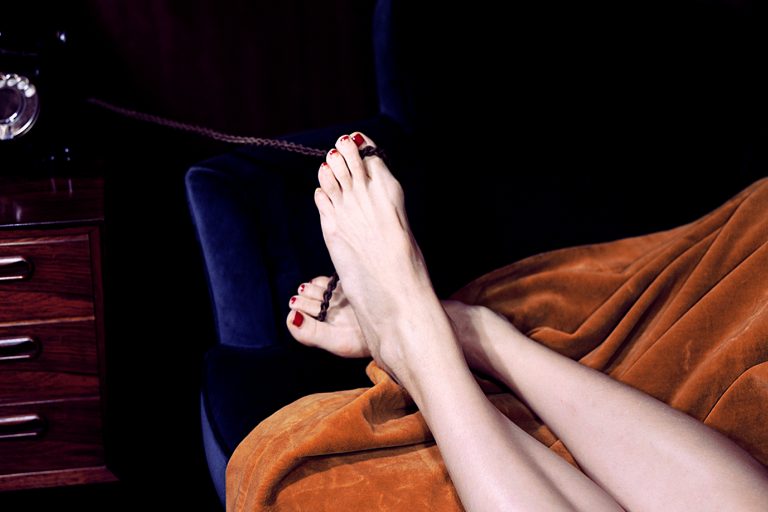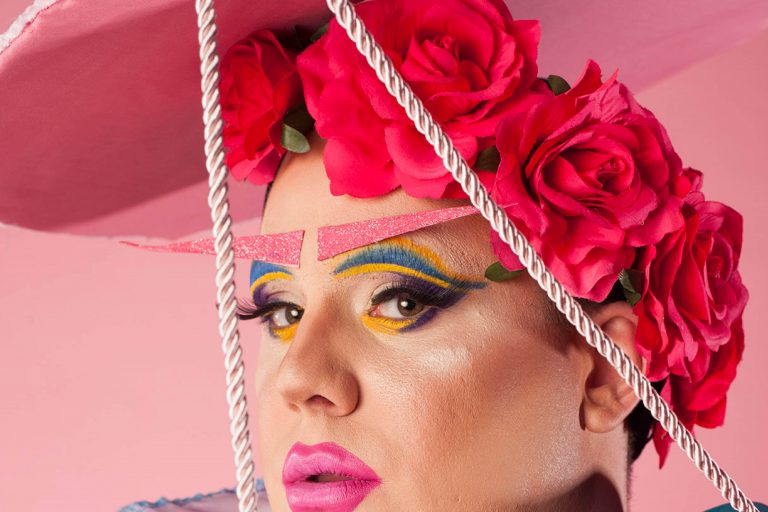
Meet the team: Shirley Yu
We catch up with the Issue Three photographer, now in her final year at Rutgers University
One of the best pitches we received for Issue Three came from budding American photographer Shirley Yu. Her opening email told us all we needed to know. The concept was described in rich detail, the link to our theme was strong and her portfolio left us in little doubt that the final images would be of high quality.
Amazingly, all this came from a 19 year old without any formal training in photography. We’d learned a little about Shirley back in August 2014 when she submitted work to our site, so it was great to see her confidently pitch to us months later. It’s even better, having worked with her, to see that her career is continuing to develop at pace.

For Intern Issue Three
Last year we featured your work as part of our talent series. In that post we learned that you were studying I.T. and computer science, how have you managed to balance your time between studies and your photography?
This year, my photography career has grown beyond my expectations. Winning a grand prize award for PDN EDU’s International Photography contest in April, I look back with surprise at the amount of opportunities that have popped up for me over the course of the year. How do you deal with realising your potential, your passion and your purpose in something, at the time that you’re three years into a four-year practical degree that you decided on when you were seventeen, at the time when you’re getting your feet wet in photography, and not sure whether it will turn into anything?
I’m a Yes-girl. I take opportunities when they come my way, but it overwhelmed me at first. In the spring, I didn’t pass any of my classes. In the summer, I struggled to keep balance while doing photography, taking summer courses at night, and working as a social media photo editor at New York Magazine’s The Cut, but I made out okay. Now I realise that I have one semester left, and rather than taking time off, I plan on keeping the commitment that I made, and finishing it through.
I‘ve decided to drop my studies in I.T and finish my degree in computer science exclusively. I’ve cut the number of classes I’m taking so that I have two free days during the week for photography-related things plus the weekends, made a lot of decisions on which days I need to be in class, which opportunities are going to be the most beneficial to me, and whether I can get a classmate to note-take for me on days that I need to go to the studio or go to a magazine. It’s beyond nuts, but I’ve always taken on challenges and lived for the hustle.

Looking back before that, when did your interest in photography begin?
Ironically, it stems from my parents enrolling me in intensive fine arts training (watercolour, sketch, acrylic, pastel, pencil, you name it) with one of the most rigorous instructors on America’s east coast, when I was a pre-teen. Before that, in my childhood, it was ballet, piano, guitar, and a string of things that were meant to be resume-boosters, and teach me discipline. In my pre-teen years, I hung out at the local bookstore, flipping through books in the art section, and eventually, the photography section where I stumbled upon the works of Richard Avedon. Then I decided to take a film photography class. I moved to digital because I loved how easy it was to share my pictures, how vibrant I could make the colours, how they “popped” online.

In lieu of formal studies in photography, what have been the most valuable learning tools or experiences on your journey so far?
Originally, I felt I was at a disadvantage, when I wanted to get more into photography as a serious pursuit, but I didn’t have the resources that my friends in art school, formally studying it. It made me work harder. One of the most valuable learning tools was joining the APA (American Photographic Artists) because I got to network and learn from people who were working in the field. Instead of classes, I attended workshops and lectures at night. Instead of critiques from professors, I’d get portfolio reviews from APA members who were professionals in the field (photography agents, photographers, art buyers, magazine editors).
The first thing was, I started assisting as many APA photographers as I could, whether they shot food or commercial work or celebrity portraits. I learned from everyone, rising from a third assistant to a first. With some experience under my belt, I reached out to many established fashion photographers in the field, and got to assist a couple. Some of them became like mentors, and I loved every experience, as high-paced and difficult that photography assisting turned out to be.
The second thing was, internships which my status as a student, regardless of my major, allowed me to pursue. My internship at Jack Studios allowed me to discover contemporary fashion photographers and enhance my technical skills. I took mental notes when cleaning up after them, breaking down their sets, taking a look at their equipment lists and when their final shots came out, I thought about their decision making process when executing their ideas. My internship at Interview magazine gave me insight into a magazine’s style, how it influences how they go about selecting photographers and working with them as contributors. I love internships so much that after the new year, I’ll be starting my next one in the editorial photography department at Refinery29!

Now that you’re approaching graduation, are you jumping straight in to full-time freelance work or will you be approaching that world with caution?
I think I’ll spend the next half-year preparing, and then a half year of as much freelancing as I can take, I’m a pragmatist, so I’d say this next year is going to be half-caution, half-jumping straight in. Upon graduation in July, I’m going to be spend a bit of time apartment hunting. I’m trying for a two bedroom with high ceilings, and one bedroom that can be converted into a home studio / guest room. For that, I’ll have to save $6000 by July. It might be a challenge but it’s not impossible. I do as much as I can in the time that I have: shooting look-books, licensing out my images, selling things on Amazon and hosting on AirBNB.

For Issue Three you photographed a selection of emerging fashion designers, all of whom had worked internships, alongside their own collections. How did you come up with the concept and how did it develop over time?
Well I knew that the theme of intern‘s Issue Three was education, and personally, I knew that my best form of education was internships. I have a strong belief that for a young designer in the fashion industry, an employer, investor or client would rather see their real world experience and how they applied what they learned from paying their dues, rather than a prestigious degree by itself.
The traditional idea of an internship is: working and learning from the background. So I thought that we should bring these emerging designers, recent / current interns, into the foreground. Because I highly appreciated it, and didn’t expect it, when my supervisors at my internship granted me a portfolio review. As a creative without formal studies in photography, I loved the idea of shedding light on promising work that goes beyond traditional education, but that has been refined by real-world experiences, an education in the field.

For Intern Issue Three
Your style seems well suited to fashion, has it always been a subject matter you’ve been interested in?
Absolutely. As a teenager, I read a lot of magazines, mainstream ones at first, but then a lot of indie publications. I felt as if my day-to-day in the American suburbs was so mundane, and my circle of whom I interacted with was so small. I loved the idea of pursuing fashion and fashion portraiture, because I wanted to create, and I wanted to work with others that create. I wanted to escape. I’m a person with dreams. So many people in my life have told me “No!”, and really, I want to be who I am. I wanted to inject my spirit and my personality into my images.

When planning a new shoot, how do you begin to plan a concept?
I like to think about something that’s fun or that excites me. It might be a character, or a feeling, or a place. Sometimes I think about something ironic, or perhaps overdone, and I find something funny about it, then shoot it.

Do you find it more challenging to work to a strict or open brief?
I think it’s a bit more challenging to work on a strict brief. I’m in photography, because it makes me happy, so in order for me to make something great, I need to find something about the concept or the brief that I can relate to and have fun with. One of the biggest I’ve learned is when to say “No”. Often I get an unusually strict brief, because they had a photographer before me, and they’ve planned the entire thing out, but that photographer isn’t able to do the shoot. Unless they picked me for a reason, because there’s something that I do or bring to the table that would make a difference, I’ve learned to pass it up, because neither parties end up happy.

What would be your ideal commission and why?
My ideal commission would be an open brief, where from a concept or a collection that inspires me, I’m able to instantly visualise exactly how I would shoot and am welcome to propose my own interpretations: from the props to the models, to the moods and the feelings that I would want to express. I want people to like me for me, and so, I want people to commission me, for me.

If you could offer one piece of advice to young photographers, what would it be?
Do you. With social media consuming our lives, my advice is focus less on what or who is popular, and think about your own voice. Whether you have followers or have a lack of followers, there will always be people who will show you / tell you that you’re not what they want, that they don’t like you, and you might feel rejected or invalidated. Don’t get it discourage you. Don’t let it push you into shooting work that doesn’t do something for you, because your work will suffer.
You should shoot what you want, when you want. You’ll never please everyone, and if you keep trying, you won’t be fulfilled. Charles Bukowski said “If you’re doing it for money or fame, don’t do it.” “If you’re doing it because you want women in your bed, don’t do it.” “If it’s hard work just thinking about it, don’t do it.” “Don’t be dull and boring and pretentious, don’t be consumed with self love. Don’t add to that. Don’t do it.”

_______
For more of Shirley’s work, check out her new website via the link below.








